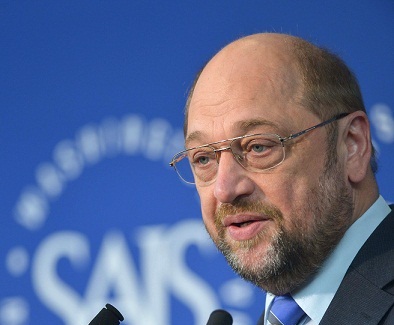Reuters
WASHINGTON: Egypt made the most progress among developing countries in cutting deaths of children under age 5 from 1990 to 2005 while Iraq deteriorated the most, a US-based charity said in a report on Tuesday.
The humanitarian group Save the Children tracked child mortality trends in 60 developing countries during this period. Twenty either made no progress in reducing these deaths or had higher death rates.
These 60 countries accounted for 94 percent of child deaths worldwide, the report said. About 10.2 million children under age 5 die annually around the world – 99 percent in developing nations amid poverty, disease and malnutrition – with 28,000 deaths a day.
Nearly three-quarters of all such deaths were due to pneumonia, diarrhea and newborn disorders like premature birth, birth asphyxia and birth defects, the report said. Deaths of children under 5 declined 68 percent in Egypt from 1990 to 2005, the report said. Iraq, gripped by war since a US-led invasion in March 2003 and subjected to years of economic sanctions before that, had a 150 percent increase in child mortality, it added.
Even before the latest war, Iraqi mothers and children were facing a grave humanitarian crisis caused by years of repression, conflict and external sanctions, the report said.
Wartime electricity shortages, insufficient clean water, deteriorating health services and soaring inflation have worsened already difficult living conditions, it said.
In 2005, it added, 122,000 Iraqi children – one in eight – died before age 5, half in the first month of life.
The report also ranked 140 countries for how good they are for mothers and children, based on a number of factors. Sweden, Iceland and Norway were on top. The United States placed 26th, tied with Hungary. Niger was last.
The report called Egypt a success story.
The local NGOs’ petition was independent of those presented by UN Watch and Freedom House, both global campaigners for human rights.
The Ministry of Foreign Affairs was unavailable for comment.
It s important for General Assembly members to vote against [the four countries] or to abstain or to write in the name of another country, Tom Melia, the deputy director of Washington-based Freedom House, told a press conference.
Fifteen countries are competing for the 14 council seats which are allocated on a regional basis.
The US has so far declined to stand for membership.
Each candidate is evaluated based on criteria such as political rights and political freedoms, freedom of the press and human rights promotion at the UN, according to Hillel Neuer, the head of Geneva-based UN Watch.
Denmark, Italy, the Netherlands and Slovenia were judged well qualified while Bolivia, India, Indonesia, Madagascar, Nicaragua, the Philippines and South Africa were found to be questionable.
A majority of the UN General Assembly must write in the name of the candidate on a ballot in order for a country to be elected. The Human Rights Council was created last year to replace the discredited Human Rights Commission as part of UN reforms.
A separate report by Freedom House listed Myanmar, Cuba, Libya, North Korea, Somalia, Sudan, Turkmenistan and Uzbekistan as the world s most repressive societies.
Belarus, China, Ivory Coast, Equatorial Guinea, Eritrea, Laos, Saudi Arabia, Syria and Zimbabwe were also placed near the bottom of Freedom House s list of the most repressive countries. Additional reporting from AFP

